Understanding Jock Itch and Its Impact on Intimacy
Jock itch, also known as tinea cruris, is a common fungal infection that affects the groin area. Although it can be embarrassing and uncomfortable, it's important to understand that jock itch is a common problem that can be easily treated. In this section, we'll discuss what jock itch is, how it affects intimacy, and some of the steps you can take to maintain a healthy relationship despite dealing with this issue.
First, let's talk about what jock itch actually is. It's a fungal infection caused by the same fungus that causes athlete's foot and ringworm. The infection typically occurs in warm, moist areas of the body, making the groin area an ideal breeding ground for the fungus. Symptoms include redness, itching, and a burning sensation in the affected area.
Now that we know what jock itch is, let's talk about how it can impact intimacy in a relationship. The itching and burning sensations can make physical intimacy uncomfortable for both partners, and the embarrassment of dealing with a visible rash can lead to feelings of self-consciousness and anxiety. This can create barriers to open communication and emotional connection, which are essential for maintaining a healthy relationship.
Seeking Medical Advice and Treatment
One of the most important steps to take when dealing with jock itch is seeking medical advice and treatment. While there are many over-the-counter antifungal creams available, it's best to consult with a healthcare professional to ensure you're using the right treatment for your specific situation. They can also offer guidance on how to prevent future infections and maintain good hygiene in the affected area.
In addition to seeking medical advice, it's crucial to be open and honest with your partner about your condition. Sharing your experiences, concerns, and progress can help create a supportive environment in which both partners feel comfortable discussing their needs and feelings.
Practicing Good Hygiene
Good hygiene is essential for preventing and treating jock itch. This means keeping the affected area clean and dry, as the fungus thrives in warm, moist environments. Shower regularly, especially after exercising, and make sure to dry the groin area thoroughly. Wear clean, dry underwear made of moisture-wicking fabric and avoid tight-fitting clothing that can trap heat and moisture. By practicing good hygiene, you can help reduce the risk of infection and maintain a healthy, comfortable environment for intimacy.
Communicating with Your Partner
Open communication is key for maintaining a healthy relationship, especially when dealing with a sensitive issue like jock itch. It's important to discuss your condition with your partner and to keep the lines of communication open throughout the treatment process. This can help alleviate feelings of embarrassment and anxiety, and it can also allow both partners to express their needs and concerns in a supportive environment.
Remember that jock itch is a common condition, and there's no need to feel ashamed or embarrassed. By discussing the issue openly and honestly, you can help create a stronger emotional connection with your partner and foster a healthier, more understanding relationship.
Being Patient During the Healing Process
Healing from jock itch can take some time, and it's important to be patient during the process. It may be necessary to temporarily avoid certain intimate activities that can cause discomfort or exacerbate symptoms. However, this doesn't mean that intimacy has to be completely off the table. There are many ways to maintain emotional and physical closeness while allowing the affected area to heal.
Explore alternative forms of intimacy, such as cuddling, holding hands, or engaging in non-genital-focused sexual activities. This can help maintain a close connection with your partner while giving your body the time it needs to heal.
Managing Stress and Anxiety
Dealing with jock itch can be stressful and anxiety-provoking, especially when it impacts intimacy in a relationship. It's important to recognize and address these feelings in order to maintain a healthy emotional connection with your partner. Consider practicing stress-reduction techniques, such as deep breathing exercises, meditation, or engaging in activities that bring you joy and relaxation.
Additionally, remember that it's normal to feel anxious or stressed during this time, and it's important to be kind to yourself and your partner. By managing stress and anxiety, you can create a more positive, supportive environment for healing and maintaining a healthy relationship.
Maintaining a Healthy Lifestyle
A healthy lifestyle can play a significant role in preventing and treating jock itch, as well as supporting overall well-being. This includes eating a balanced diet, getting regular exercise, and staying hydrated. A healthy lifestyle can also help boost your immune system, making it easier for your body to fight off infections like jock itch.
By maintaining a healthy lifestyle, you can also support your emotional well-being and create a stronger foundation for a healthy, happy relationship.
Preventing Future Infections
Once your jock itch has been treated, it's important to take steps to prevent future infections. This includes continuing to practice good hygiene, keeping the groin area clean and dry, and wearing moisture-wicking, breathable underwear. Additionally, be sure to wash your workout clothes and athletic gear regularly, as these can harbor the fungus that causes jock itch.
By taking steps to prevent future infections, you can help maintain a healthy, comfortable environment for intimacy in your relationship.
Embracing a Healthy, Supportive Relationship
Dealing with jock itch can be challenging, but it doesn't have to define your relationship. By seeking medical advice, practicing good hygiene, communicating openly with your partner, and exploring alternative forms of intimacy, you can maintain a healthy, supportive relationship during this time. Remember that jock itch is a common condition, and there's no need to feel ashamed or embarrassed. By embracing a healthy, supportive relationship, you can overcome this temporary obstacle and continue to enjoy a loving, fulfilling connection with your partner.

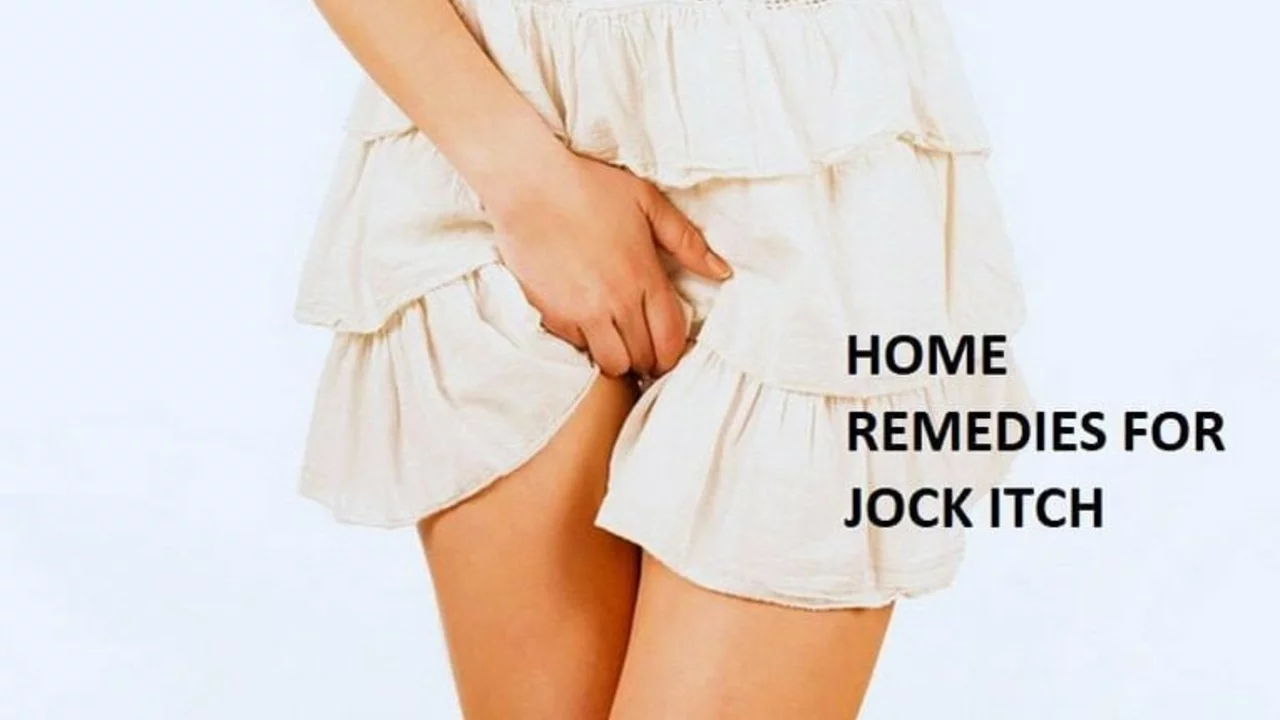
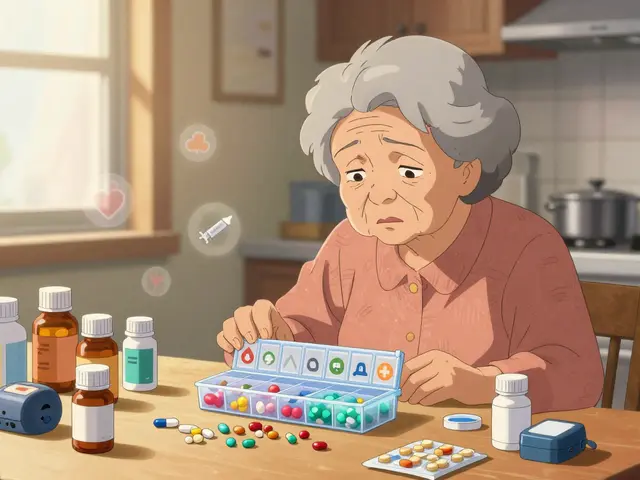
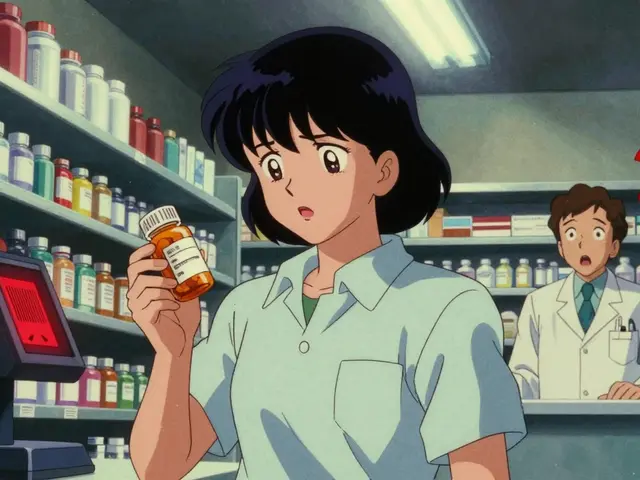
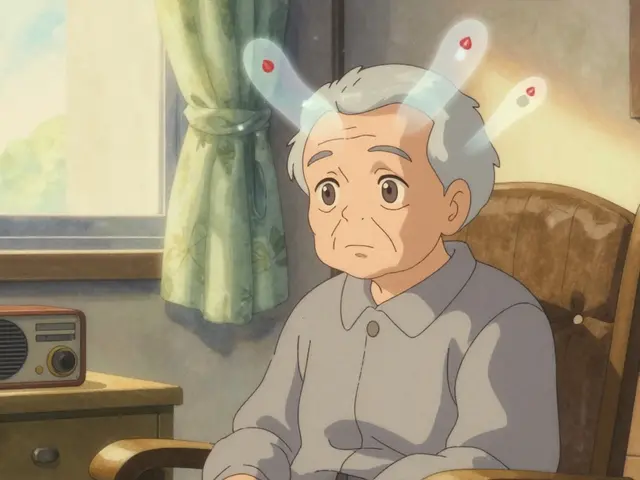

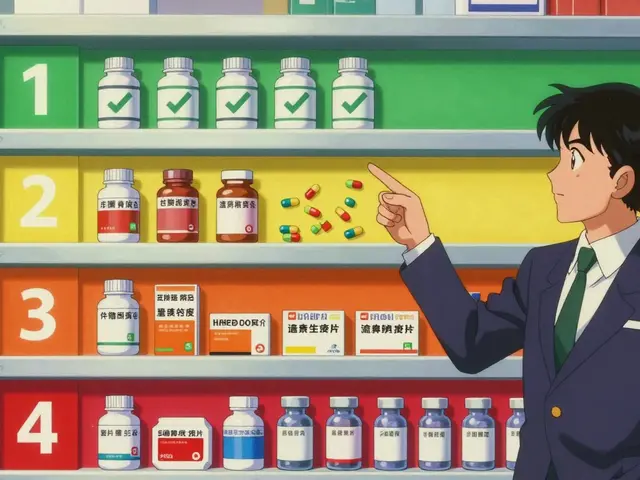
Benjamin Hamel
June 18, 2023 AT 14:49While most guides treat jock itch like the apocalypse of the bedroom, I'd argue the whole panic is a bit theatrical and, frankly, unnecessary. First, the fungus is nothing more than a microscopic opportunist that thrives where moisture lingers, and with a little common sense you can outsmart it without turning your love life into a clinical trial. Second, the notion that intimacy must come to a grinding halt is more myth than medicine; many couples discover creative ways to stay close while the rash heals. Third, the over‑the‑counter creams you see on pharmacy shelves contain the same active ingredients that dermatologists prescribe, so the stigma of “needing a prescription” is largely a marketing ploy. Fourth, communication, not concealment, is the real catalyst for a healthy relationship-if you tell your partner you’re dealing with a fungal guest, you’re actually inviting partnership, not abandonment. Fifth, the psychological weight of embarrassment often outweighs the physical discomfort, meaning that a calm discussion can reduce anxiety faster than any antifungal. Sixth, remember that the skin’s microbiome is a resilient ecosystem; if you keep the area clean and dry, it will rebalance itself without constant medicated intervention. Seventh, this is also a perfect excuse to upgrade your wardrobe to breathable fabrics, which benefits both health and comfort. Eighth, the anxiety about “visibility” of a rash is mitigated by simple measures like loose clothing and strategic positioning during intimacy. Ninth, a short break from certain sexual activities can be a blessing, giving both partners a chance to explore non‑genital affection like cuddling, massage, and whispered conversations. Tenth, that kind of emotional intimacy often deepens the bond more than any night of frantic lovemaking ever could. Eleventh, stress reduction techniques-deep breathing, mindfulness, even a quick jog-boost your immune response, indirectly fighting the fungus. Twelfth, hydration and a balanced diet support skin health, making it harder for the fungus to set up camp. Thirteenth, if you do decide to use medication, follow the instructions precisely; half‑hearted applications rarely succeed. Fourteenth, the timeline for healing is usually two to four weeks, not an eternity, so maintain patience. Fifteenth, after resolution, maintain good hygiene habits to prevent recurrence, and you’ll avoid the whole drama in the future. Finally, embracing this minor hurdle with humor and honesty will likely make your relationship stronger than before.
Christian James Wood
June 18, 2023 AT 15:30Honestly, the glorified optimism in the previous post borders on naïve self‑help fluff, and anyone who's ever wrestled with a stubborn fungal infection knows that sugar‑coating the reality does more harm than good. First, suggesting that “creative ways to stay close” is a half‑hearted band‑aid for a genuine physical discomfort that can be downright excruciating for many. Second, the claim that over‑the‑counter creams are equivalent to prescriptions neglects the pharmacokinetic nuances that only a qualified dermatologist can assess. Third, implying that anxiety “often outweighs” the actual symptoms dismisses the lived experience of those who endure persistent itching that interrupts sleep and daily function. Fourth, the romanticized narrative about “non‑genital affection” feels like a forced platitude when the affected area is actively inflamed and pain‑inducing. Fifth, while I agree hygiene is crucial, the post overlooks socioeconomic barriers that prevent some individuals from accessing breathable fabrics or proper laundry facilities. Sixth, the timeline of “two to four weeks” is an optimistic average; in reality, recalcitrant cases can linger for months, especially when comorbidities like diabetes are present. Seventh, the emphasis on “patience” shoves the responsibility onto the patient instead of acknowledging systemic gaps in health education. Eighth, the suggestion that stress reduction alone can boost immunity is an oversimplification that borders on pseudo‑science. Ninth, attempting to convert a medical condition into a relationship‑building exercise risks trivializing the serious discomfort many endure. Tenth, let’s not pretend that a rash is merely a conversation starter; it’s a physiological battle that demands proper medical oversight. Eleventh, the moral of the story should be that “seek professional help early,” not that “talk it out and make jokes.” Twelfth, if you truly care about your partner’s well‑being, prioritize evidence‑based treatment over emotional platitudes.
Rebecca Ebstein
June 18, 2023 AT 16:53Hey, don't stress too much! Jock itch is super common so no need to feel weird about it. Just keep things clean, talk to your partner, and use a good cream-boom, you'll be back to normal in no time. Remember, a little patience and honesty goes a long way. You got this!!!
Artie Alex
June 18, 2023 AT 18:16From a dermatopathological perspective, the superficial mycosis under discussion merely illustrates a classic case of Cutaneous Dermatophytosis, wherein the keratinous stratum corneum serves as a substrate for Trichophyton rubrum colonization. While the lay‑person's reassurance is appreciated, it is imperative to underscore the necessity of adjunctive therapeutic regimens, including topical azoles with proven fungicidal activity, complemented by systemic agents in refractory scenarios. Moreover, the psychosocial impact of chronic pruritus cannot be dismissed as trivial, given its correlation with heightened cortisol levels and subsequent immunomodulatory disruption. Therefore, a multidisciplinary approach-encompassing mycological culture, histopathological confirmation, and patient education-optimally mitigates the risk of recurrence. In addition, the narrative surrounding "just chill" fails to acknowledge the intricate interplay between host immunity and environmental moisture gradients that perpetuate the pathogen's lifecycle. Ultimately, a rigorous adherence to evidence‑based protocols supersedes anecdotal optimism in ensuring both dermatological resolution and relational stability.
abigail loterina
June 18, 2023 AT 19:40It’s totally okay to feel a little uneasy, but the best thing you can do is keep the area dry and use a simple antifungal cream. Talk openly with your partner-honesty builds trust and makes it easier to get through this together. Make sure you change out of sweaty clothes quickly and pick underwear that lets air flow. If you follow these steps, the rash will clear up and you’ll both feel more comfortable. You’re not alone in this, and taking small, consistent actions will bring big relief.
Roger Cole
June 18, 2023 AT 21:03Good hygiene and open communication are the simplest fixes.
Krishna Garimella
June 18, 2023 AT 22:26Think of jock itch as a tiny obstacle course that your body set up, and you’re the champion who can run through it with the right strategy. First, treat the fungus with a reliable cream-consider it your weapon. Then, keep the battlefield dry; moisture is the enemy’s ally. Talk to your partner like you’d share a game plan; together you’ll score the win. Remember, every setback is just a setup for a stronger comeback. Keep moving, stay positive, and let the healing process fuel your confidence. In the end, you’ll emerge both healthier and more connected.
nalina Rajkumar
June 18, 2023 AT 23:50Totally agree 🙌 small steps make a big difference and talking it out keeps the vibes good 😄 stay strong and keep that smile on!
Michael Barrett
June 19, 2023 AT 01:13It must be noted, that whilst the lay‑person may view jock itch as merely a trivial inconvenience, the underlying mycological mechanisms are in fact a microcosm of ecological competition; the dermatophyte, seeking keratin as its primary nutrient, engages in a perpetual arms race with the host's innate immune defenses. One might argue, that the very act of discussing such a condition in a relational context reveals deeper ontological questions about bodily autonomy and interpersonal trust. Moreover, the prescription of topical azoles, when applied correctly, can achieve fungicidal concentrations exceeding the minimal inhibitory concentration; however, anecdotal evidence suggests that adherence is often compromised by psychosocial factors. Therefore, a holistic approach-incorporating hygiene, pharmacotherapy, and emotional support-represents the optimal paradigm; neglecting any component may lead to suboptimal outcomes. Additionally, the temporal dynamics of fungal eradication typically span 2–4 weeks, yet patient perception of healing can be distorted by heightened anxiety; this cognitive bias underscores the necessity of clear communication between partners. In conclusion, the convergence of dermatological science and relational dynamics offers a fertile ground for interdisciplinary study; future research should explore the psychophysiological feedback loops inherent in such scenarios.